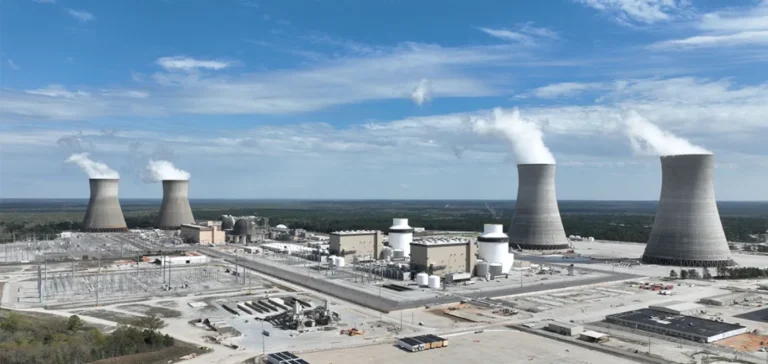Nuclear energy is regaining traction in the United States, according to the latest Climate Perspectives Survey conducted among 1,003 national respondents. The study shows that 58% of Americans support nuclear power, a steady increase from 49% in 2018. This trend reflects a gradual shift in perception amid the transformation of the country’s energy mix.
Converting coal plants into nuclear sites
A broad majority of the public – 73% – supports converting retired coal-fired power plants into nuclear facilities. This option enjoys notable bipartisan support, reaching 77% among voters of the two main parties. Approval is particularly high among adults over 65 (78%) but also among younger adults aged 18 to 24, with a support rate of 71%.
Support driven by energy reliability
Electricity reliability is cited by 74% of respondents as the primary reason for backing nuclear energy. Other motivations include strengthening industrial competitiveness, reducing pollution, and achieving energy independence. These arguments have seen growing traction since 2018, reflecting broader and more stable public support.
Nuclear research unites political opinions
Developing next-generation nuclear technologies is also viewed positively, with 58% of Americans supporting increased federal investment in research and development. Unlike fossil fuels, nuclear energy shows one of the smallest opinion gaps between Republican and Democratic voters.
Declining concerns over nuclear energy
Traditional concerns about health, safety, or nuclear waste management are decreasing, especially among Independent and Democratic voters. This trend points to increasing public acceptance of nuclear energy within the US energy landscape, although these concerns remain present.






















